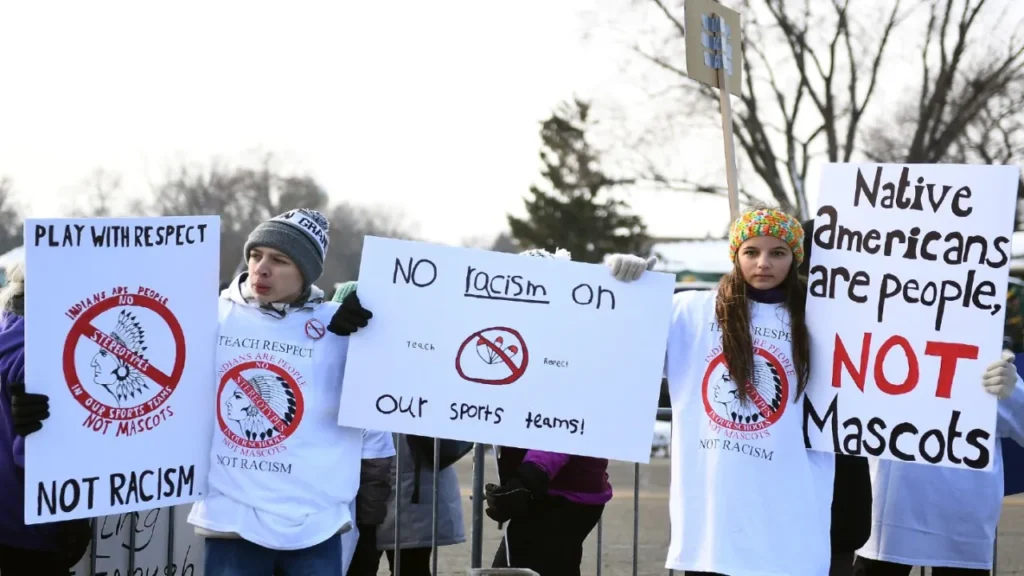Why Did the Washington Redskins Change Their Name to Commanders?
In a move that made sporting history, the Washington football team rebranded from the controversial “Redskins” to the new “Commanders” moniker back in 2022. This name change came after decades of pressure from Native American groups and heightened racial awareness, marking a pivotal shift in how professional sports franchises approach representation and cultural sensitivity.
In 2023, there has been a rising dialogue from a group called the Native American Guardian’s Association (NAGA) challenging this recent name change with pressure to return to the original “Redskins”.
Why Did The Washington Redskins Change Their Name ?
According to Google’s AI, “The Washington Redskins underwent a name change in 2020 due to a confluence of factors, mainly centered around the offensiveness of the term “Redskins.” Read on to learn a bit more about the topic.
Origins of the “Redskins” Name
The team now known as the Commanders has a rich history dating back to 1932:
- Founded as the Boston Braves
- Briefly renamed to Boston Redskins
- Relocated to Washington, D.C. in 1937
- Officially adopted the “Redskins” name
The name change to “Redskins” was reportedly to honor their former head coach, William “Lone Star” Dietz, who claimed Native American heritage. However, some historians suggest the change was also motivated by a desire to avoid confusion with the Boston baseball team, then known as the Braves.

Why “Redskins” Became Offensive
The term “redskin” has its roots in the dehumanizing language used against Native Americans throughout history. As awareness of racial insensitivity and cultural appropriation grew, the team’s name faced increasing criticism:
- Native American groups argued it perpetuated harmful stereotypes
- Conscientious fans voiced concerns about disrespecting indigenous heritage
- The name became a focal point in discussions about racism in sports
The Turning Point for Change
For years, the team faced public pressure to change its name, including:
- Protests
- Sponsor boycotts
- Political intervention from leaders like former President Barack Obama
The true tipping point came in the wake of the racial reckoning that followed the death of George Floyd in 2020. As the nation grappled with issues of systemic racism and cultural insensitivity, the team’s name became increasingly criticized.
Why the “Commanders”?
After temporarily rebranding as the “Washington Football Team,” the franchise embarked on a comprehensive process to select a new, permanent name. This involved extensive fan engagement and a thoughtful consideration of the team’s identity. Ultimately, the name “Commanders” was chosen, paying homage to Washington, D.C.’s rich military heritage and the team’s connection to the nation’s capital.
Racial Representation in Sports
The Washington team’s name change is part of a broader conversation about Native American representation in sports mascots. While some franchises, like the Atlanta Braves and Kansas City Chiefs, have made efforts to respectfully incorporate Native American imagery and traditions, others continue to face criticism for perpetuating harmful stereotypes.
The fact remains that many mascots and logos represented in sports are often inanimate objects, animals, or generalized groups separate of racial identity. . I think it’s worth noting the only racial group consistently depicted in sports are the indigenous Native Americans, which is problematic in many ways.
Conclusion
The transition from the Redskins to the Commanders represents a pivotal moment in sports history, signaling a shift towards greater cultural awareness and a willingness to address problematic team identities. This decision carries historical significance, as it reflects the evolving societal norms around race, representation, and the power of public pressure to drive meaningful change. As the world of sports continues to grapple with these issues, the Washington Commanders’ journey serves as a poignant reminder of the importance of embracing diversity, respecting cultural heritage, and fostering an inclusive environment for all fans.

